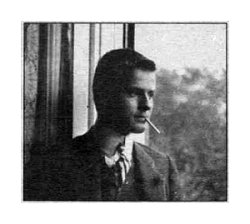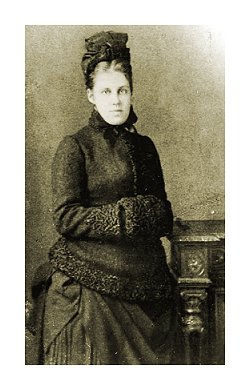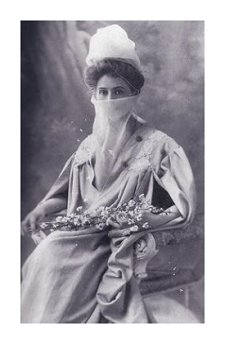Fleurs du Mal Magazine



The Sorrows of Young Werther (36) by J.W. von Goethe
JANUARY 8, 1772.
What beings are men, whose whole thoughts are occupied with form and
ceremony, who for years together devote their mental and physical
exertions to the task of advancing themselves but one step, and
endeavouring to occupy a higher place at the table. Not that such
persons would otherwise want employment: on the contrary, they give
themselves much trouble by neglecting important business for such petty
trifles. Last week a question of precedence arose at a sledging-party,
and all our amusement was spoiled.
The silly creatures cannot see that it is not place which constitutes
real greatness, since the man who occupies the first place but
seldom plays the principal part. How many kings are governed by their
ministers–how many ministers by their secretaries? Who, in such cases,
is really the chief? He, as it seems to me, who can see through the
others, and possesses strength or skill enough to make their power or
passions subservient to the execution of his own designs.
JANUARY 20.
I must write to you from this place, my dear Charlotte, from a small
room in a country inn, where I have taken shelter from a severe storm.
During my whole residence in that wretched place D–, where I lived
amongst strangers,–strangers, indeed, to this heart,–I never at any
time felt the smallest inclination to correspond with you; but in this
cottage, in this retirement, in this solitude, with the snow and hail
beating against my lattice-pane, you are my first thought. The instant
I entered, your figure rose up before me, and the remembrance! O my
Charlotte, the sacred, tender remembrance! Gracious Heaven! restore to
me the happy moment of our first acquaintance.
Could you but see me, my dear Charlotte, in the whirl of
dissipation,–how my senses are dried up, but my heart is at no time
full. I enjoy no single moment of happiness: all is vain–nothing
touches me. I stand, as it were, before the raree-show: I see the little
puppets move, and I ask whether it is not an optical illusion. I am
amused with these puppets, or, rather, I am myself one of them: but,
when I sometimes grasp my neighbour’s hand, I feel that it is not
natural; and I withdraw mine with a shudder. In the evening I say I will
enjoy the next morning’s sunrise, and yet I remain in bed: in the day I
promise to ramble by moonlight; and I, nevertheless, remain at home. I
know not why I rise, nor why I go to sleep.
The leaven which animated my existence is gone: the charm which cheered
me in the gloom of night, and aroused me from my morning slumbers, is
for ever fled.
I have found but one being here to interest me, a Miss B–. She
resembles you, my dear Charlotte, if any one can possibly resemble you.
“Ah!” you will say, “he has learned how to pay fine compliments.” And
this is partly true. I have been very agreeable lately, as it was not
in my power to be otherwise. I have, moreover, a deal of wit: and the
ladies say that no one understands flattery better, or falsehoods you
will add; since the one accomplishment invariably accompanies the
other. But I must tell you of Miss B–. She has abundance of soul,
which flashes from her deep blue eyes. Her rank is a torment to her, and
satisfies no one desire of her heart. She would gladly retire from
this whirl of fashion, and we often picture to ourselves a life of
undisturbed happiness in distant scenes of rural retirement: and then we
speak of you, my dear Charlotte; for she knows you, and renders homage
to your merits; but her homage is not exacted, but voluntary, she loves
you, and delights to hear you made the subject of conversation.
Oh, that I were sitting at your feet in your favourite little room, with
the dear children playing around us! If they became troublesome to you,
I would tell them some appalling goblin story; and they would crowd
round me with silent attention. The sun is setting in glory; his last
rays are shining on the snow, which covers the face of the country: the
storm is over, and I must return to my dungeon. Adieu!–Is Albert with
you? and what is he to you? God forgive the question.
The Sorrows of Young Werther (Die Leiden des jungen Werther) by J.W. von Goethe. Translated by R.D. Boylan.
To be continued
fleursdumal.nl magazine
More in: -Die Leiden des jungen Werther, Goethe, Johann Wolfgang von
Renée Vivien
(1877-1909)
Ta royale jeunesse a la mélancolie
Ta royale jeunesse a la mélancolie
Du Nord où le brouillard efface les couleurs,
Tu mêles la discorde et le désir aux pleurs,
Grave comme Hamlet, pâle comme Ophélie.
Tu passes, dans l’éclair d’une belle folie,
Comme elle, prodiguant les chansons et les fleurs,
Comme lui, sous l’orgueil dérobant tes douleurs,
Sans que la fixité de ton regard oublie.
Souris, amante blonde, ou rêve, sombre amant,
Ton être double attire, ainsi qu’un double aimant,
Et ta chair brûle avec l’ardeur froide d’un cierge.
Mon coeur déconcerté se trouble quand je vois
Ton front pensif de prince et tes yeux bleus de vierge,
Tantôt l’Un, tantôt l’Autre, et les Deux à la fois.
Renée Vivien poetry
fleursdumal.nl magazine
More in: Archive U-V, Renée Vivien, Vivien, Renée

Hans Leybold
(1892-1914)
Auf einer Feldpostkarte
Zerflossen alles
in wirren Schaum,
mein Hirn ein weiter
luftleerer Raum.
Von außen schlagen
die Hämmer drauf:
mein Schädel ist
ein Kirchturmknauf.
Hans Leybold poetry
fleursdumal.nl magazine
More in: *War Poetry Archive, Archive K-L, Hans Leybold, Leybold, Hans

Rob Stuart: Mutation
Biography: Rob Stuart is a media studies lecturer, filmmaker and writer living in Southeast England. He has contributed poetry to a variety of magazines and e-zines including Ink, Sweat & Tears, Light, Lighten Up Online, Magma, New Statesman, The Oldie, The Spectator and Snakeskin.
fleursdumal.nl magazine
More in: *Concrete + Visual Poetry P-T, Rob Stuart, Rob Stuart, Stuart, Rob
 JuniGedicht
JuniGedicht
zondag15juni2014
Westerpark Amsterdam
persoonlijke ontmoetingen met 40 dichters
13.00 – 15.00 uur
Dichter bij beeld
Twintig dichters dragen hun gedicht voor bij een van de beeldende kunstwerken die het park rijk is. De helft ervan is geïnspireerd op de markante beelden van Herbert Nouwens die deze zomer daar tentoongesteld staan.
15.00 – 17.00 uur
Dichters in het gras
Ruim twintig bekende en onbekende dichters zitten verspreid door het park en dragen voor uit eigen werk.
14.00 – 16.00 uur
Ik ben een berk
Kinderen en ouders zijn welkom op de picknickwei om een gedicht te schrijven onder leiding van dichter Jacques Brooijmans.
De dichters: Baban Kirkuki, Jos van Hest, Diana Ozon, Co Woudsma, Joost Baars, Wendela de Vos, Everdina Eilander, Salima I.E.M. Senders, Frans Terken, Joyce Hes, Judy Elfferich, Mariet Lems, Gerda Postumus, Job Degenaar, Tonny Hollanders, Nafiss Nia, Wim Hartog, Annemarie Kuster, Paul Roelofsen, Jeannine Winklaar, Jos Zuijderwijk, Kees Godefrooij, Lydia Dalmijn, Michiel van Rooij, Marjet Cliteur, Koos Hagen, Peter Prins, Ton Huizer, Aurora Guds, Maarten Emanuel Stok, Robin Veen, Martin van de Vijfeijke, Philip Rozema, Edith de Gilde, Simon Mulder, Vicky en Kelly Breemen, Juan Tajes, Ibrahim Selman, Gökhan Aksoy, Will van Sebille, Monica de Ruiter, Sabine Kars, Merik van der Torren, Ronald M. Offerman, F. Starik.
Poëzie en eten: Tussen de gedichten door kan het publiek zich tegoed doen aan lekker eten op de NeighbourFood Market.
Agenda zondag 15 juni
13.00 – 15.00 uur live optredens dichter bij beeld
14.00 – 16.00 uur workshop voor kinderen en ouders
15.00 – 17.00 uur dichters in het gras
# Meer informatie op website School der Poëzie
fleursdumal.nl magazine
More in: Art & Literature News, Literary Events, The talk of the town

Photo by David Shankbone
In memory of Lucy Gordon
To One in Paradise
by Edgar Allan Poe
Thou wast that all to me, love,
For which my soul did pine—
A green isle in the sea, love,
A fountain and a shrine,
All wreathed with fairy fruits and flowers,
And all the flowers were mine.
Ah, dream too bright to last!
Ah, starry Hope! that didst arise
But to be overcast!
A voice from out the Future cries,
“On! on!”—but o’er the Past
(Dim gulf!) my spirit hovering lies
Mute, motionless, aghast!
For, alas! alas! with me
The light of Life is o’er!
No more—no more—no more—
(Such language holds the solemn sea
To the sands upon the shore)
Shall bloom the thunder-blasted tree,
Or the stricken eagle soar!
And all my days are trances,
And all my nightly dreams
Are where thy grey eye glances,
And where thy footstep gleams—
In what ethereal dances,
By what eternal streams.
20 May 2014: In memory of Lucy Gordon (22 May 1980 – 20 May 2009)
Photo Lucy gordon by David Shankbone: Lucy Gordon at the 2007 premiere of Spider-Man 3
(David Shankbone: Creative Commons Attribution-Share Alike 3.0 Unported license), 2007)
Tombeau de la Jeunesse – fleursdumal.nl magazine
More in: In Memoriam, Lucy Gordon, Poe, Edgar Allan

Emma Lazarus
(1849 – 1887)
Loneliness
All stupor of surprise hath passed away;
She sees, with clearer vision than before,
A world far off of light and laughter gay,
Herself alone and lonely evermore.
Folk come and go, and reach her in no wise,
Mere flitting phantoms to her heavy eyes.
All outward things, that once seemed part of her,
Fall from her, like the leaves in autumn shed.
She feels as one embalmed in spice and myrrh,
With the heart eaten out, a long time dead;
Unchanged without, the features and the form;
Within, devoured by the thin red worm.
By her own prowess she must stand or fall,
This grief is to be conquered day by day.
Who could befriend her? who could make this small,
Or her strength great? she meets it as she may.
A weary struggle and a constant pain,
She dreams not they may ever cease nor wane.
Emma Lazarus poetry
fleursdumal.nl magazine
More in: Archive K-L, Lazarus, Emma

Hans Hermans photos: Island (Terschelling) III
hanshermans©2014
fleursdumal.nl magazine
More in: Dutch Landscapes, Hans Hermans Photos, Photography

The Sorrows of Young Werther (35) by J.W. von Goethe
DECEMBER 24.
As I anticipated, the ambassador occasions me infinite annoyance. He is
the most punctilious blockhead under heaven. He does everything step by
step, with the trifling minuteness of an old woman; and he is a man whom
it is impossible to please, because he is never pleased with himself. I
like to do business regularly and cheerfully, and, when it is finished,
to leave it. But he constantly returns my papers to me, saying, “They
will do,” but recommending me to look over them again, as “one may
always improve by using a better word or a more appropriate particle.”
I then lose all patience, and wish myself at the devil’s. Not a
conjunction, not an adverb, must be omitted: he has a deadly antipathy
to all those transpositions of which I am so fond; and, if the music
of our periods is not tuned to the established, official key, he cannot
comprehend our meaning. It is deplorable to be connected with such a
fellow.
My acquaintance with the Count C–is the only compensation for such an
evil. He told me frankly, the other day, that he was much displeased
with the difficulties and delays of the ambassador; that people like him
are obstacles, both to themselves and to others. “But,” added he, “one
must submit, like a traveller who has to ascend a mountain: if the
mountain was not there, the road would be both shorter and pleasanter;
but there it is, and he must get over it.”
The old man perceives the count’s partiality for me: this annoys him,
and, he seizes every opportunity to depreciate the count in my hearing.
I naturally defend him, and that only makes matters worse. Yesterday he
made me indignant, for he also alluded to me. “The count,” he said, “is
a man of the world, and a good man of business: his style is good,
and he writes with facility; but, like other geniuses, he has no solid
learning.” He looked at me with an expression that seemed to ask if I
felt the blow. But it did not produce the desired effect: I despise a
man who can think and act in such a manner. However, I made a stand, and
answered with not a little warmth. The count, I said, was a man entitled
to respect, alike for his character and his acquirements. I had never
met a person whose mind was stored with more useful and extensive
knowledge,–who had, in fact, mastered such an infinite variety of
subjects, and who yet retained all his activity for the details of
ordinary business. This was altogether beyond his comprehension; and I
took my leave, lest my anger should be too highly excited by some new
absurdity of his.
And you are to blame for all this, you who persuaded me to bend my
neck to this yoke by preaching a life of activity to me. If the man who
plants vegetables, and carries his corn to town on market-days, is not
more usefully employed than I am, then let me work ten years longer at
the galleys to which I am now chained.
Oh, the brilliant wretchedness, the weariness, that one is doomed
to witness among the silly people whom we meet in society here! The
ambition of rank! How they watch, how they toil, to gain precedence!
What poor and contemptible passions are displayed in their utter
nakedness! We have a woman here, for example, who never ceases to
entertain the company with accounts of her family and her estates. Any
stranger would consider her a silly being, whose head was turned by
her pretensions to rank and property; but she is in reality even
more ridiculous, the daughter of a mere magistrate’s clerk from this
neighbourhood. I cannot understand how human beings can so debase
themselves.
Every day I observe more and more the folly of judging of others by
ourselves; and I have so much trouble with myself, and my own heart is
in such constant agitation, that I am well content to let others pursue
their own course, if they only allow me the same privilege.
What provokes me most is the unhappy extent to which distinctions of
rank are carried. I know perfectly well how necessary are inequalities
of condition, and I am sensible of the advantages I myself derive
therefrom; but I would not have these institutions prove a barrier to
the small chance of happiness which I may enjoy on this earth.
I have lately become acquainted with a Miss B–, a very agreeable girl,
who has retained her natural manners in the midst of artificial life.
Our first conversation pleased us both equally; and, at taking leave,
I requested permission to visit her. She consented in so obliging a
manner, that I waited with impatience for the arrival of the happy
moment. She is not a native of this place, but resides here with her
aunt. The countenance of the old lady is not prepossessing. I paid her
much attention, addressing the greater part of my conversation to her;
and, in less than half an hour, I discovered what her niece subsequently
acknowledged to me, that her aged aunt, having but a small fortune, and
a still smaller share of understanding, enjoys no satisfaction except
in the pedigree of her ancestors, no protection save in her noble birth,
and no enjoyment but in looking from her castle over the heads of the
humble citizens. She was, no doubt, handsome in her youth, and in her
early years probably trifled away her time in rendering many a poor
youth the sport of her caprice: in her riper years she has submitted
to the yoke of a veteran officer, who, in return for her person and her
small independence, has spent with her what we may designate her age of
brass. He is dead; and she is now a widow, and deserted. She spends her
iron age alone, and would not be approached, except for the loveliness
of her niece.
The Sorrows of Young Werther (Die Leiden des jungen Werther) by J.W. von Goethe. Translated by R.D. Boylan.
To be continued
fleursdumal.nl magazine
More in: -Die Leiden des jungen Werther, Goethe, Johann Wolfgang von

Verhuizing van een vrouwelijke stadsdichter
Als het droste-effect hoogtij viert
En scheve ogen uit oude mannen puilen
Om net onder mijn rok te kijken
Wachtend op hun jeugdigheid
Heb ik toch geen medelijden.
Was ik maar één van hen,
Een rijpere oude man
onder mijn eigen rok kijkend.
Elke dag dat ik verplaats is
Als een enorme verhuizing
Maar mochten mensen bang zijn
Dat ik te Amsterdams ben
Wees niet gevreesd,
Ik ben ook maar een mens.
We zitten allen in dezelfde carrousel.
Het ene paardje is roze en de andere paars
Maar allen in dezelfde carrousel van het droste-effect.
Merry Go-Merry Go
Merry Go Round
Misschien word ik ooit nog een echte vent.
Tot die tijd ben ik de kleinste vrouw,
of, als ik op een landkaart sta, de grootste ter wereld.
Het is wit en het staat in het Vondelpark..
Witte gij ut?
Esther Porcelijn
fleursdumal.nl magazine
More in: Archive O-P, Porcelijn, Esther

DE GEEST MOET WAAIEN
vrijdag 23 t/m zondag 25 mei 2014 in Arnhem
Van 23 tot en met 25 mei vindt voor de vijfde keer De geest moet waaien. Festival voor het gesproken woord in Arnhem plaats. Het vijfjarige bestaan wordt gevierd met de komst van de multidisciplinaire kunstenaar Armando. Deze 84-jarige alleskunner is bekend van zijn poëzie, proza, schilderkunst, vioolspel en de veelbesproken serie Herenleed, die hij maakte in samenwerking met Cherry Duyns en Arnhems eigen Johnny van Doorn – naar wiens roman het festival is genoemd.
Het festival wordt geopend met een avond vol verrassende programma’s in de geest van Armando, georganiseerd door studenten van de ArtEZ-opleiding Creative Writing. Met onder meer Dennis Gaens, Jibbe Willems, Wolf Aartsen en Meneer van Dalen. De afterparty wordt verzorgd door Chefs de Partie (Dagschotel).
Op zaterdagmiddag verplaatst het festival zich naar de Rozet voor een literaire show met voordrachten, live action painting, marktkramen en muziek. Kom op zaterdagavond naar Theater aan de Rijn voor een verrassende festivalavond met schrijvers, dichters, muzikanten, kunstenaars en theatermakers die een ode brengen aan Armando in unieke programma’s. Met onder meer Frank Westerman, Hans den Hartog Jager, Vic van de Reijt, Joyce Roodnat, Cherry Duyns, Nyk de Vries, Jamal Ouariachi en eregast Armando.
In ‘De grote NAK live show!’, op zondagmiddag, zal de Nieuwe Arnhemse Krant live on stage opgevoerd worden. Het dynamische duo Koolwijk & Gipman laat de letteren links liggen en trakteert u op muziek, video en voordrachten. De krant komt tot leven! Met onder meer Martijn Brugman, Phebe Kloos, Frank van der Mee, Abe Borst, Koschka en DJ Tiger Shake. Eerder die middag speelt theatergroep Kwatta de trailervoorstelling Dierenpraat, gebaseerd op het gelijknamige boek van Armando. Absurdisme voor beginners, geschikt voor iedereen vanaf 8 jaar.
DE SCHOONHEID VAN HET KWAAD 23 mei – Theater a/d Rijn – 20.30u (deur open 20.00u) – € 5 (gratis met ArtEZ-pas)
DICHTER OP DE MARKT 24 mei – Rozet – 14.00-16.00u – gratis
LEVE ARMANDO! 24 mei – Theater a/d Rijn – 20.30u (deur open 20.00u) – € 15/ € 12,50 (CJP-/studenten-/bibliotheekpas)/ € 5 (ArtEZ-pas)
NAK LIVE 25 mei – Theater a/d Rijn – 15.00u (deur open 14.30u) – gratis
KWATTA SPEELT DIERENPRAAT 25 mei – Trailer op plein Eusebiuskerk, tegenover Dudok – 13.00u – € 10 / € 7,50 (kinderen)

# Meer informatie op website Wintertuin
fleursdumal.nl magazine
More in: Armando, Art & Literature News, Literary Events, The talk of the town

Renée Vivien
(1877-1909)
Prolong the night
Prolong the night, Goddess who sets us aflame!
Hold back from us the golden-sandalled dawn!
Already on the sea the first faint gleam
Of day is coming on.
Sleeping under your veils, protect us yet,
Having forgotten the cruelty day may give!
The wine of darkness, wine of the stars let
Overwhelm us with love!
Since no one knows what dawn will come,
Bearing the dismal future with its sorrows
In its hands, we tremble at full day, our dream
Fears all tomorrows.
Oh! keeping our hands on our still-closed eyes,
Let us vainly recall the joys that take flight!
Goddess who delights in the ruin of the rose,
Prolong the night!
Renée Vivien poetry
fleursdumal.nl magazine
More in: Archive U-V, Renée Vivien, Vivien, Renée
Thank you for reading Fleurs du Mal - magazine for art & literature